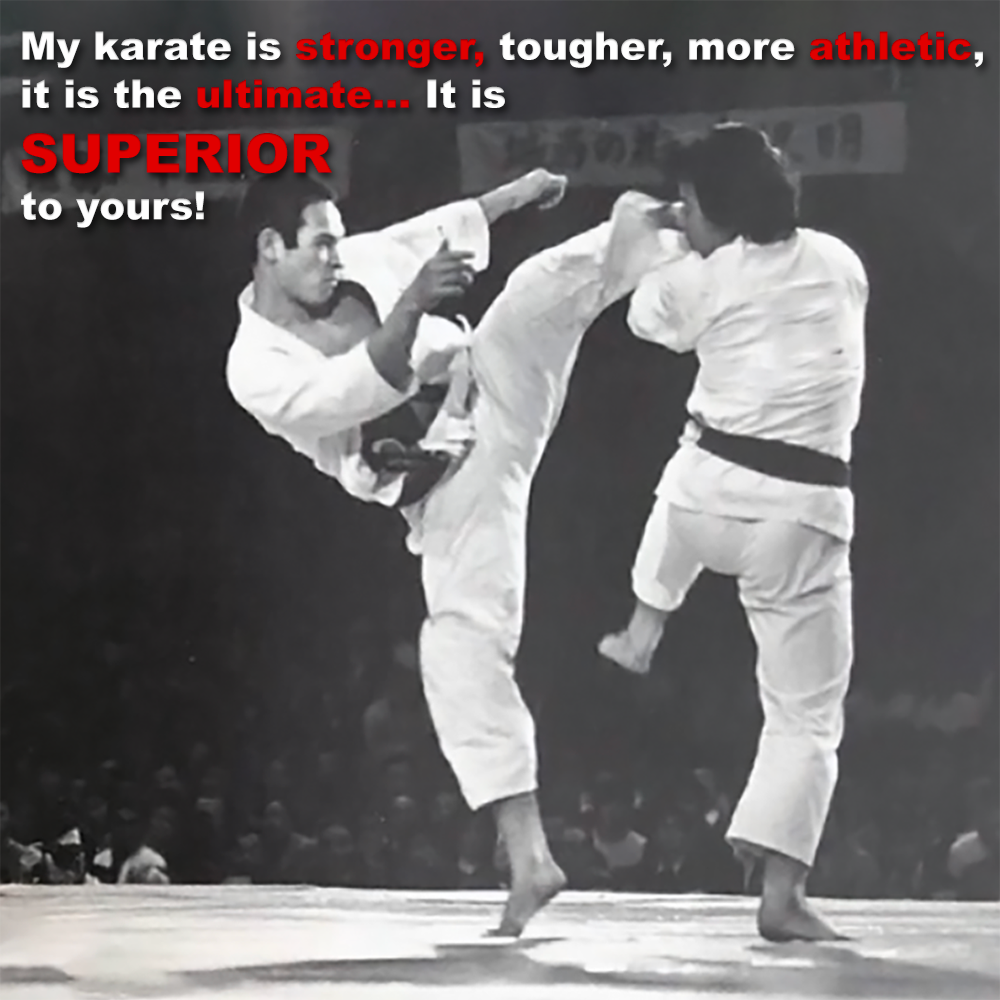
“My karate is stronger, tougher, more athletic, it is the ultimate…. It is superior to yours!”
.
Really? It’s superior, in all things?…..
.
You have to define what you mean by “superior”. I’m assuming that when people say “superior”, they mean the best in terms of effectiveness and practicality…… But superior? WHERE? In the dojo? In a ring? In a competition? In self-defense?
.
Certain enthusiasts often find themselves engaged in passionate debates about the superiority of their chosen discipline. One common claim that frequently surfaces is the assertion that “my karate is superior to yours.” While such statements may be uttered with genuine belief and pride, it is crucial to examine the fallacies underlying this notion and consider the diverse nature of martial arts.
.
The martial arts encompass a vast array of disciplines, each with its unique history, philosophy, techniques and principles. Each martial art serves a specific purpose and caters to different preferences.
.
Declaring the superiority of one over another oversimplifies its richness and diversity.
.
No single martial arts system inherently surpasses another. Various disciplines prioritize distinct elements such as competition, self-defense, or mixed tournaments, highlighting diverse theories and principles.
.
Proficiency is not solely determined by the style you practice but by the dedication, skill, and training of the individual.
.
A skilled practitioner of any martial art can be formidable, and dismissing the abilities of others based solely on the style they practice is a flawed argument.
.
Personal dedication, training intensity, and adaptability play crucial roles in determining effectiveness…. and again, effectiveness where, in what context?
.
The most effective martial artists often embrace an eclectic approach, drawing from various styles to create a well-rounded skill set. The rigid belief that one style is inherently superior can limit a practitioner’s ability to adapt and grow.
.
Different arts focus on different aspects, fighting, self-defense, tournaments, emphasizing different theories and principles. And restricting yourself to a single style may hinder adaptability in a dynamic and unpredictable real-world combat scenario.
.
The martial arts are deeply rooted in cultural traditions, each deserving respect and appreciation. The claim of superiority can foster a sense of disdain for other cultures and their martial traditions, perpetuating harmful stereotypes..… and constant arguments on social media.
.
Dismissing the effectiveness of a traditional martial art as inferior overlooks the rich history and cultural significance. Such an attitude undermines the principles of mutual respect and understanding which we should all encourage.
.
The assertion that “my karate is superior to yours”, or “our karate is the strongest”, oversimplifies the complex world of martial arts. The diversity of styles, the importance of individual skill, the teacher and school that you participate in, the benefits of an eclectic approach, and the need for cultural appreciation, all debunk the fallacy of martial superiority.
.
Rather than perpetuating a divisive mindset, we should be embracing the varied and multifaceted nature of martial arts, fostering a community that values respect, learning, and continuous improvement.
.
“If you continuously compete with others you become bitter, but if you continuously compete with yourself, you become better.”
.
.
